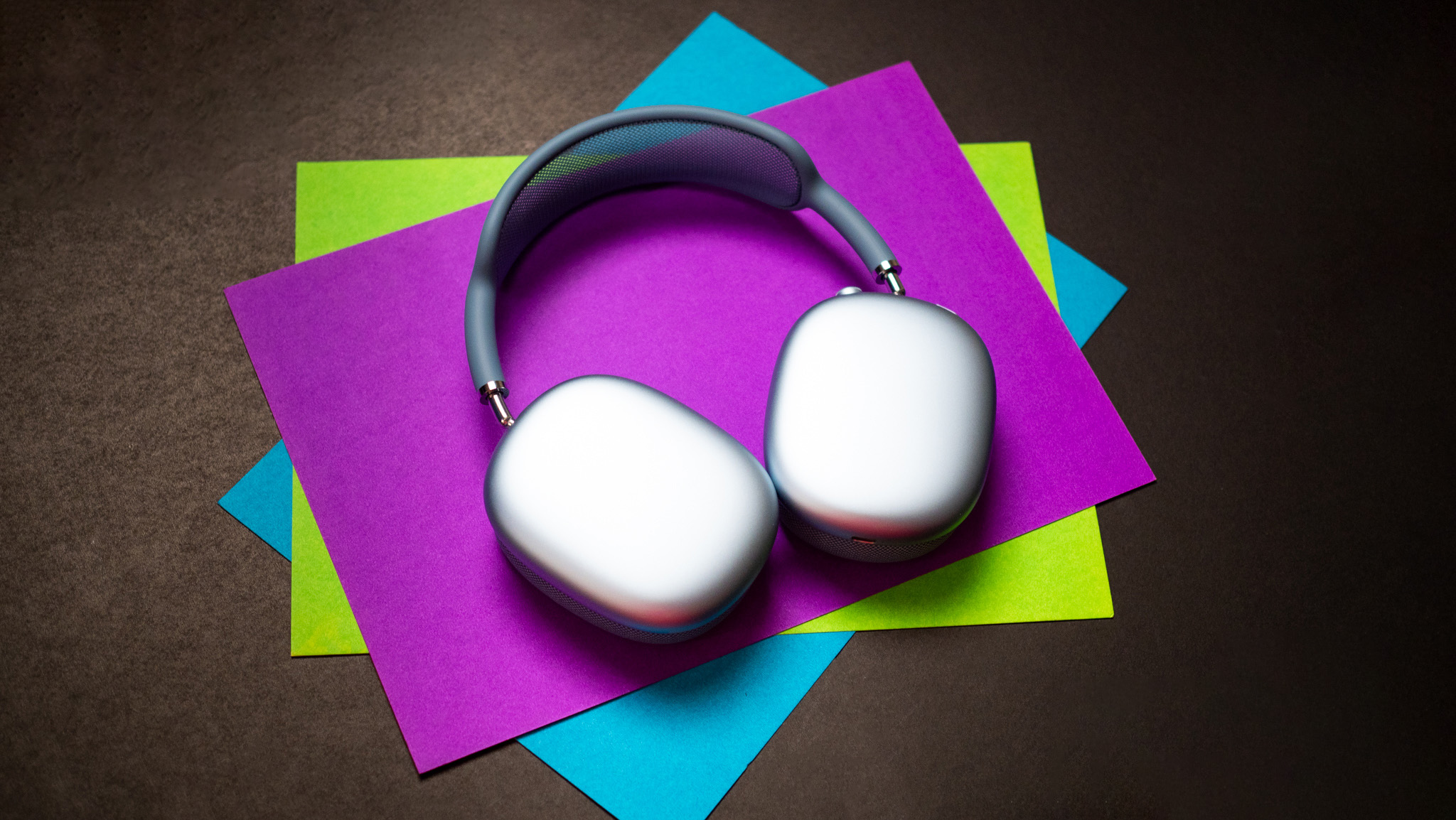Nest Audio vs. Amazon Echo (4th Gen): Which should you buy?
Choosing between the best smart speakers on the market.
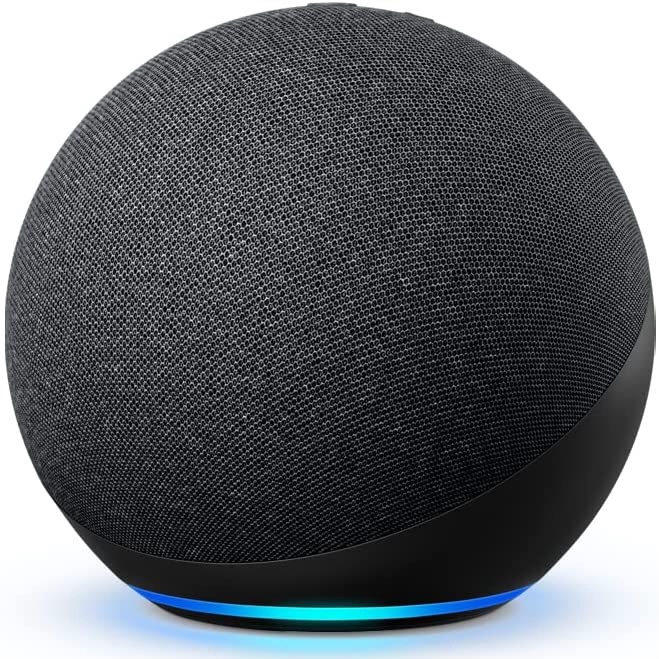
Smarter, faster, clearer
A major upgrade on the previous Echo generation, the Amazon Echo 2020 adds a faster processor for better Alexa response time, improved music quality thanks to revamped drivers, and control over more devices thanks to Zigbee connectivity. Add in Dolby processing, multi-room music and hands-free calls, and you get a versatile home speaker.
For
- Rich, powerful audio
- Speedy Alexa responses
- Dolby Atmos
- Zigbee and Sidewalk support
- Affordable price
Against
- Unresponsive buttons
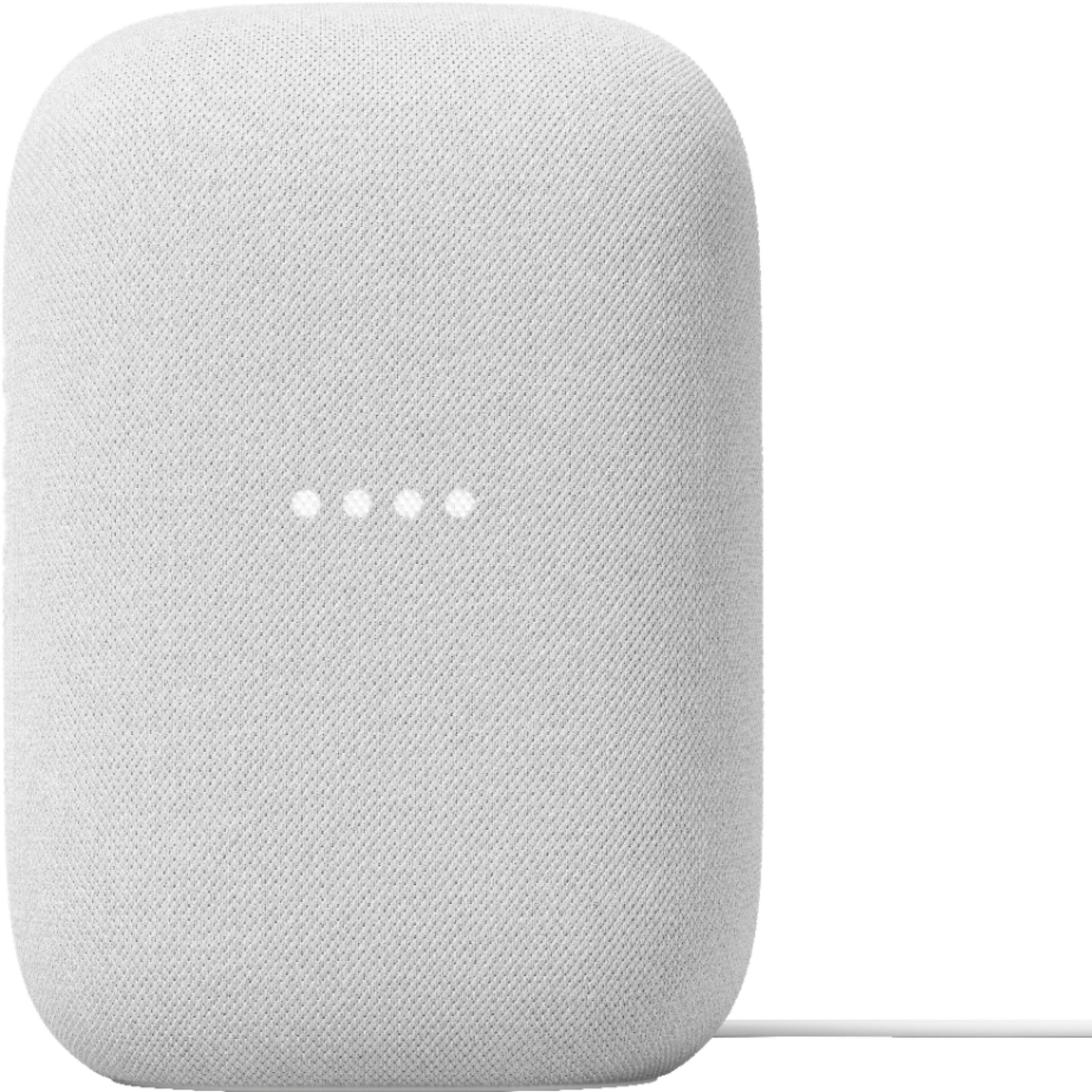
Audio and Assistant revamped
Despite the name change from Google Home to Nest Audio, Google's latest speaker is less focused on new smart home integrations and more on improved audio quality, improved Google Assistant response time and a striking, multi-colored tower design. Regular Google and Nest Security users will find plenty to like with this device.
For
- Solid audio quality
- Great EQ customization and automation
- Fast processor for Assistant commands
- Excellent mic quality
- Intuitive capacitive touch controls
Against
- Occasional software glitches
Amazon Echo and Nest Audio remain the two most reliable speakers for controlling your smart home. Both released in October 2020, these smart speakers made significant upgrades over their predecessors that make them still worth buying almost two years later. But which of the two is the better choice? We've reviewed both products and have the necessary knowledge to help you decide.
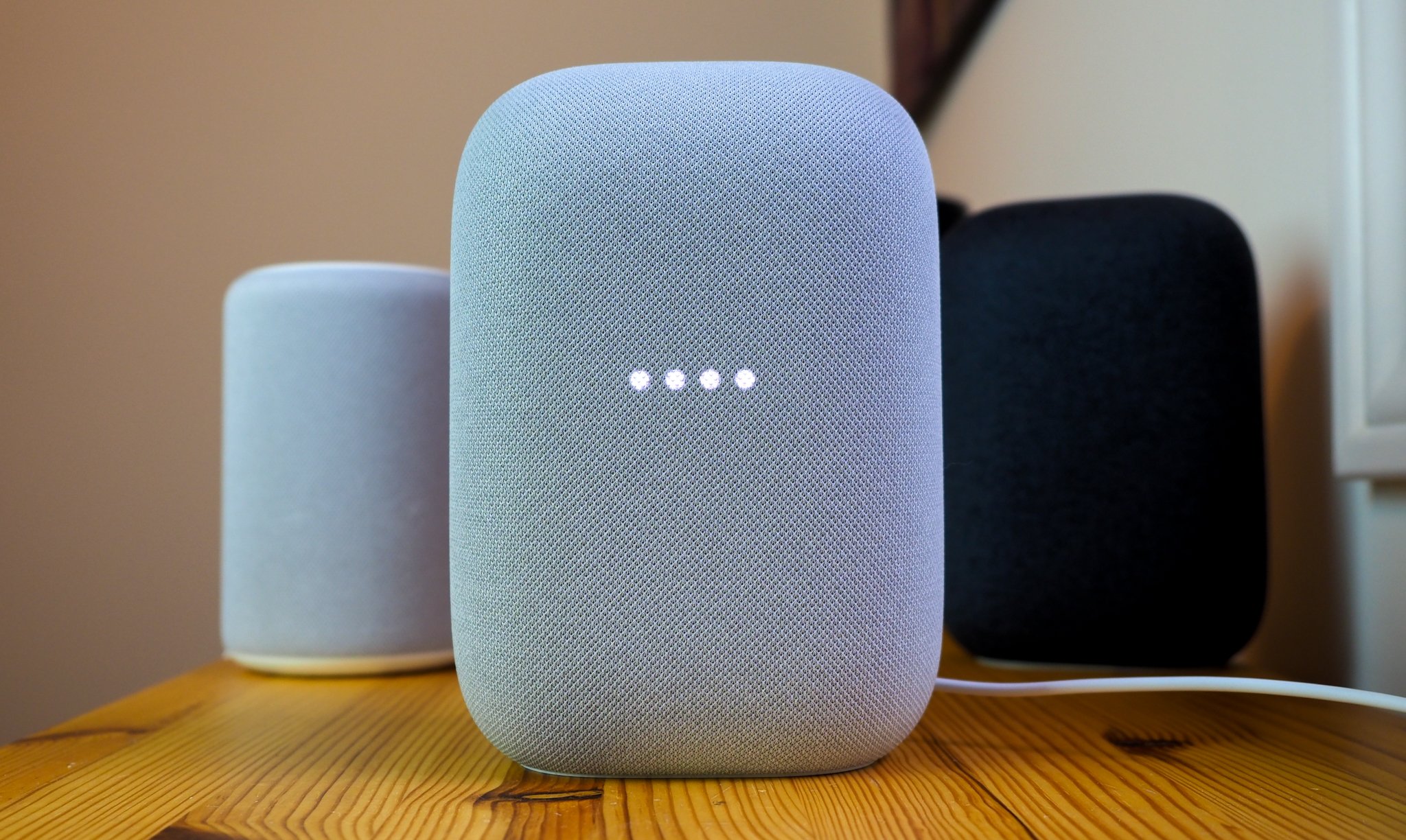
Nest Audio vs. Amazon Echo: Comparing audio quality
Before we get to the "smarts," let's focus on the speaker side of these two devices. You can buy an Echo Dot or Nest Mini if you solely want a cheap way to speak to a smart assistant: If you're buying the Nest Audio or Amazon Echo, you'll also want some rich audio to go along with the higher cost.
With the Nest Audio, you get one 2.95-inch woofer and one 0.75-inch tweeter, which Google claims makes it "75 percent louder [with] 50 percent stronger bass" than the last Google Home speaker. With the Amazon Echo (4th Gen), you receive one 3-inch woofer and dual front-firing 0.8-inch tweeters, which Amazon claims made it "significantly better" for audio than the 3rd-gen model.
How do these specs equate to real-world use? Our Nest reviewer called its sound "good, but not amazing." He praised the "clarity and dynamic range" compared to the "muddy and boomy" Google Home before it, saying the "the low-end is clean and inviting, vocals come through beautifully, and there's no sharpness or sibilance at the high-end." But overall, he felt it had a "flat sound profile" and needed EQ adjustments for proper bass in certain music genres.
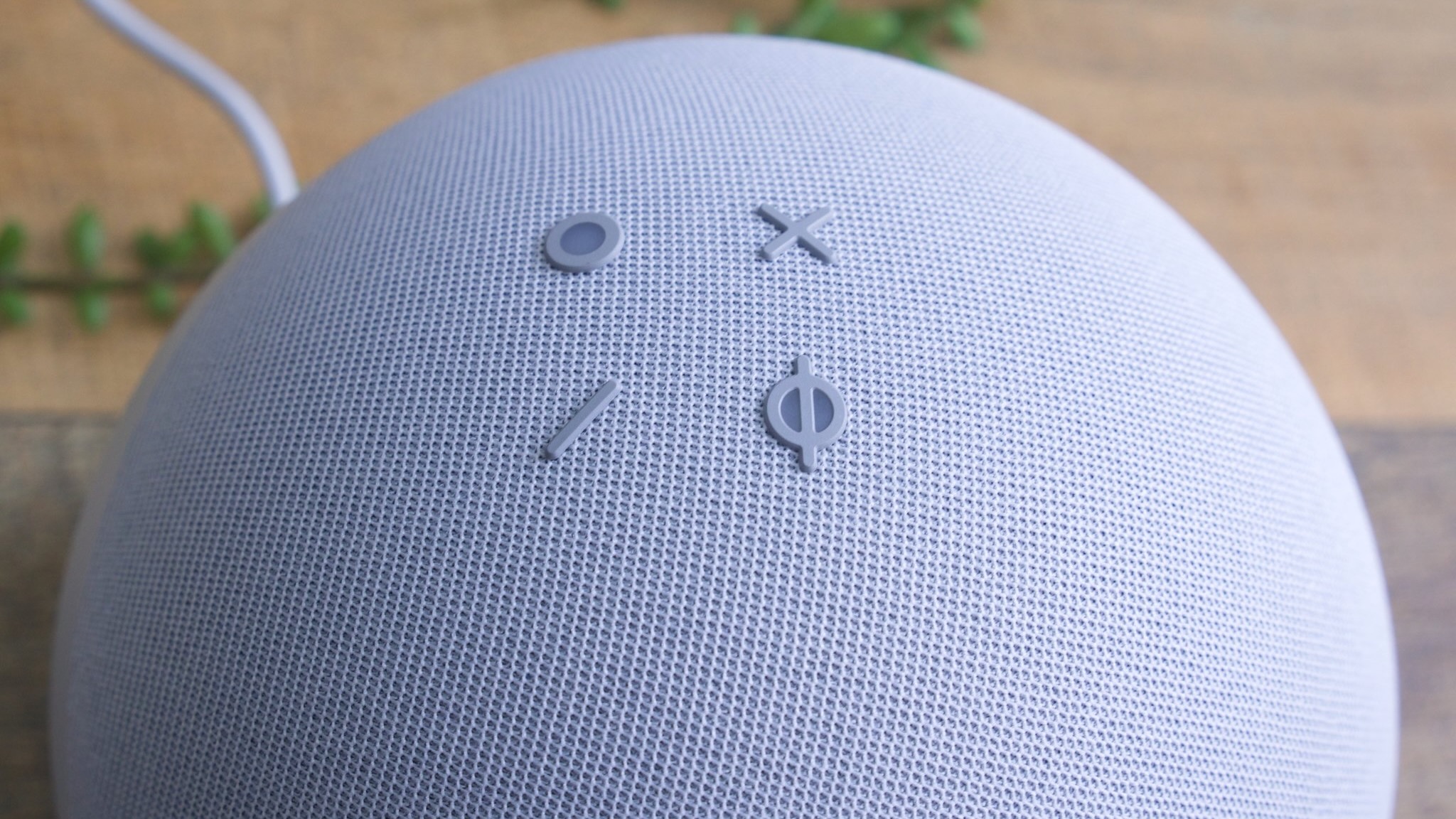
Turning to the Amazon Echo's sound, our reviewer said he was "constantly impressed" with the audio quality across genres. It "kicks out a ton of bass" with a "nice thump on the low end, but the mid and high end still sounds good to my ears." Comparing it to the excellent Sonos One speaker, he described it as an excellent alternative at just half the price. And you can also make EQ adjustments as needed.
Both Nest Audio and Echo let you create a stereo pair with another Google or Amazon speaker, respectively, to create a better overall sound. The Nest Audio "really excels" in this area thanks to its "waveguide tweeters" that point sound to a "sweet spot" in the room. Whichever speaker you end up choosing, audiophiles may want to grab two if you find them at a major discount.
Google also has software tools like Media EQ — which changes your settings automatically based on what you're listening to — or Ambient IQ, which adjusts the sound if the speaker hears loud noises nearby. But neat software tools don't necessarily give Nest Audio the better sound here compared to Echo, only more convenience.
Nest Audio vs. Amazon Echo: Specs and compatible tech
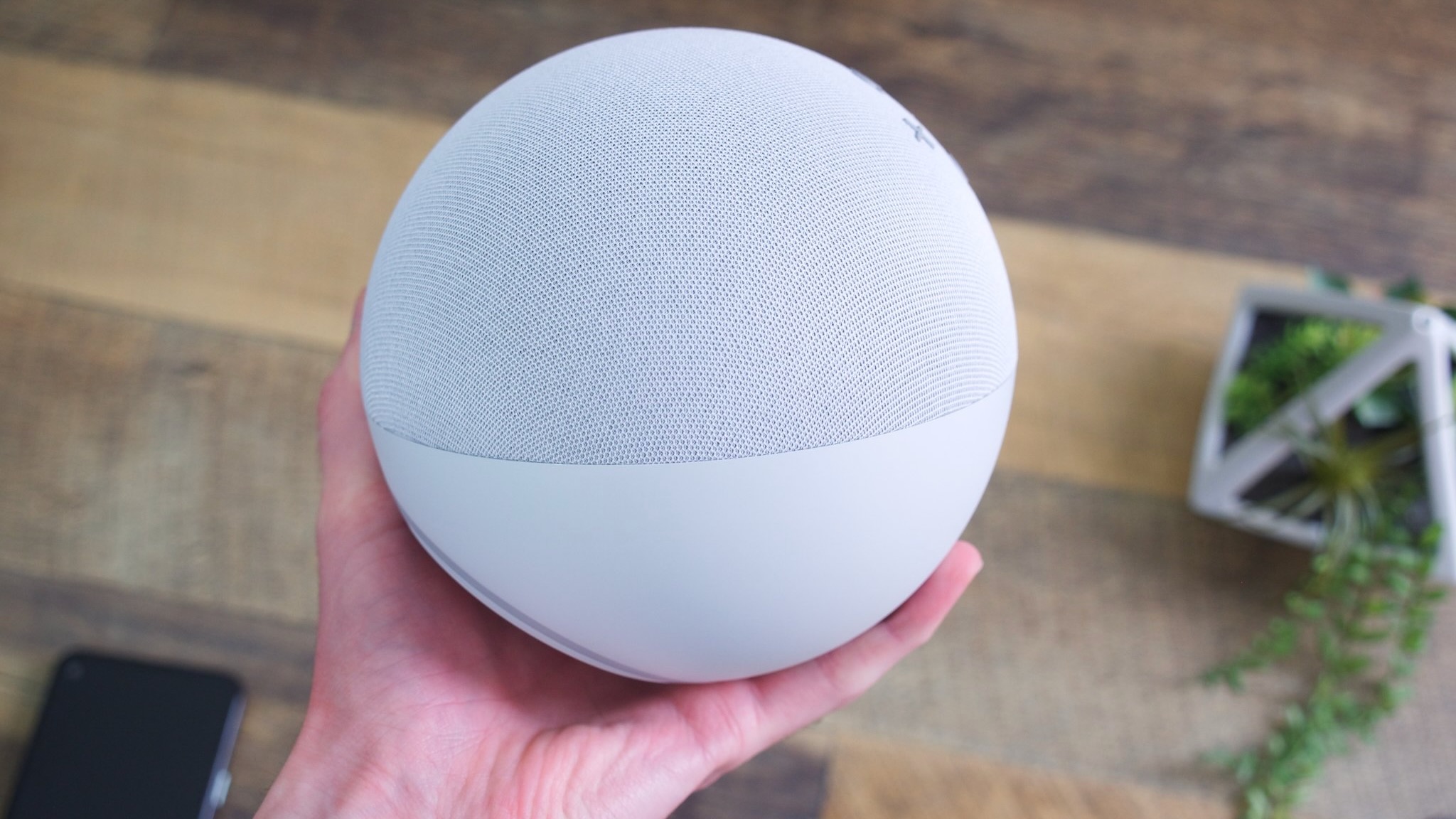
Google and Amazon have created enough iterations of their smart speakers to know what they need to work well, making it unsurprising that the two devices have similar features.
To connect to your Nest Audio or Amazon Echo speaker, you can use either dual-band Wi-Fi or the latest Bluetooth tech. Each has multiple far-field mics to capture your voice commands successfully, bright LED lights to indicate when the speaker is listening or responding to you, and mic-off buttons to ensure your privacy.
The Echo does have a more spherical design compared to the Nest Audio's tall pill shape, but don't expect 360º audio from the Echo: It's designed to send sound straight forward, just like the Nest Audio. Neither of them is much to look at, though the Echo's ball shape is slightly more striking to our subjective taste, while the Nest Audio will fit more easily in a smaller space and has more colorful finishes.
Our major annoyance with the Echo (4th Gen) is with its buttons, which our reviewer said "have a wonderful click to them" but "don't always perform the action that they should" unless you apply an extra bit of force. As for the Nest Audio, it relies on capacitive touch instead of physical buttons, and our reviewer was a huge fan of how well these controls worked by comparison.
| Header Cell - Column 0 | Google Nest Audio | Amazon Echo (4th Gen) |
|---|---|---|
| Dimensions | 4.89 inches x 3.07 inches x 6.89 inches, 2.65 pounds | 5.7 inches x 5.7 inches x 5.2 inches, 2.14 pounds |
| Colors | Chalk, Charcoal, Sage, Sand, Sky | Charcoal, Glacier White, Twilight Blue |
| Processor | Quad Core A53 1.8 GHz with TeraOPS ML hardware engine | AZ1 Neural Edge |
| Speakers | 75mm (2.95 inch) woofer, 19mm (0.75 inch) tweeter | 76.2mm (3.0 inch) woofer, dual front-firing 20.3mm (0.8 inch) tweeters |
| Wi-Fi | 802.11b/g/n/ac (2.4 GHz / 5 GHz) | 802.11a/b/g/n/ac (2.4 / 5 GHz) |
| Bluetooth | 5.0 | 5.0 |
| Built-in Chromecast | Yes | No |
| 3.5mm line in-out | No | Yes |
| Voice commands | Google Assistant: Control smart home tech, Voice Match, Family Bell | Alexa: Skills, Voice Profiles |
| Smart home tech | Nest Security compatibility | Zigbee smart home hub; Amazon Sidewalk Bridge |
| LED indicators | Four circular lights on front | Ring around the base |
| Buy 2 for stereo sound? | Yes | Yes |
| Use as a TV speaker? | No | Yes |
If the Amazon Echo has one hardware perk, it's the 3.5mm line in/out port, which lets you link your second Echo to the first via the plug instead of wirelessly, or to listen directly to music via some 3.5mm headphones.
Otherwise, the differences come down to software and compatibility. The Echo can be paired with certain televisions to work as a TV speaker, something the Nest Audio cannot currently do. There's a wide range of Google Assistant-compatible devices that can be controlled through a simple Nest Audio command, from Philips bulbs to Nest locks and thermostats to various security cams, but not through Alexa commands. The same is true in reverse for these Alexa-compatible devices.
Both Google and Amazon boast about their new devices' improved processing speeds. The Amazon Echo allegedly processes requests twice as fast as the 3rd-Gen Echo, thanks to the AZ1 Neural Edge processor; you get "2x faster speech processing and lower memory usage by up to 85%" compared to before, and it's still the fastest you'll get from any Echo speaker. With Nest Audio, you get "one TeraOPS of processing power," so Google Assistant requests can be handled locally instead of over the cloud.
In practice, our Nest Audio reviewer said "this is the most responsive Google Assistant has ever been on a speaker," but that you may resent the lack of exclusive features compared to other Google Assistant devices. Our Echo reviewer hadn't tested previous Amazon speakers and couldn't compare the speed, but was quite happy in general, especially with features like Alexa routines.
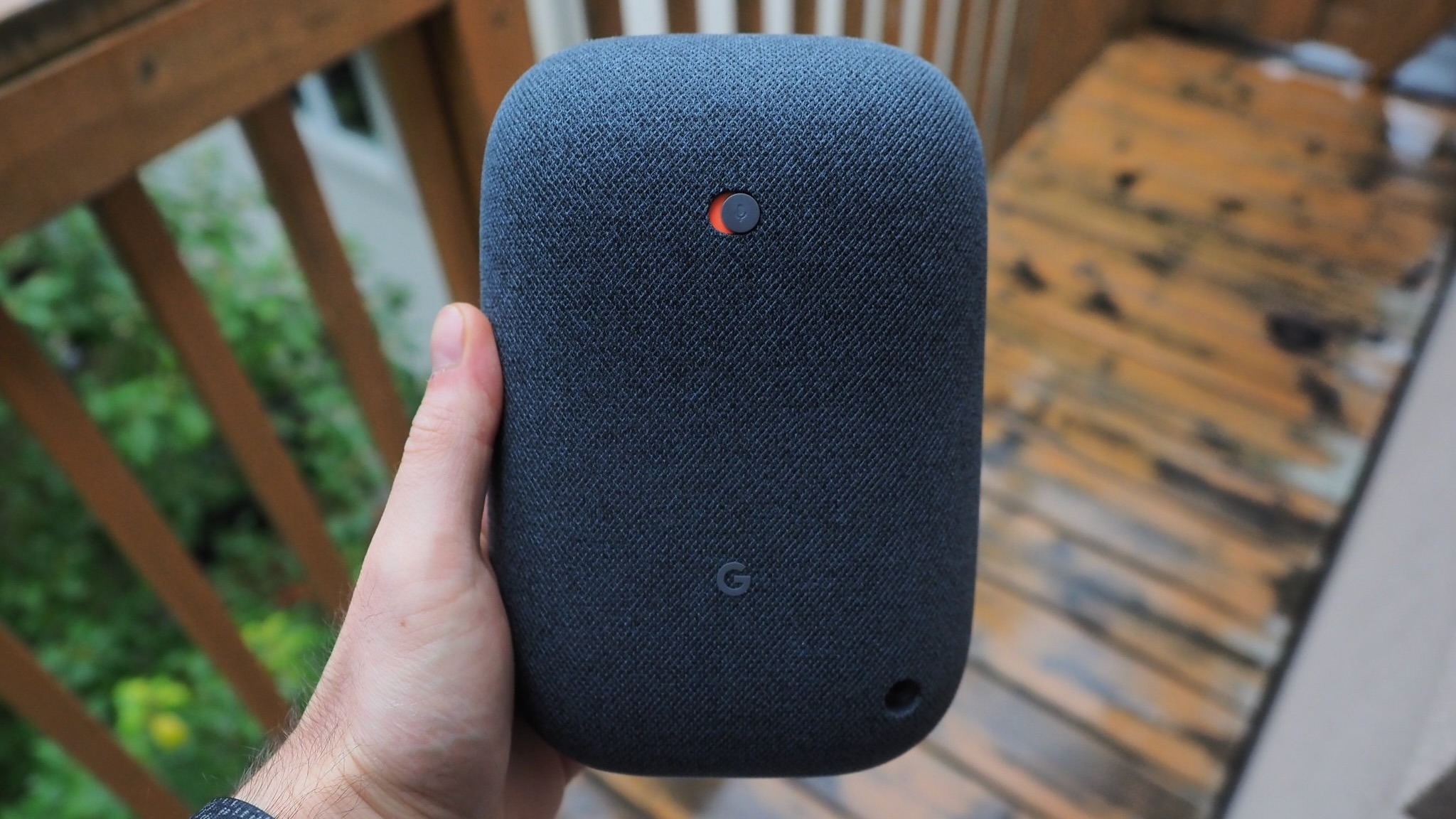
In other words, if you prefer a specific assistant, you'll be happy with the corresponding speaker for unlocking its full potential. Or if you've previously purchased tech to go with one speaker ecosystem, it makes sense to stick with the system and voice phrases you know and use already.
Google, for instance, is reportedly working on syncing Nest Audio with Google TV, so you can pair one or two with a compatible Android TV, as well as integrating Fitbit and Wear OS so you see workout results on your TV and hear coaching through your Nest Audio speakers.
Amazon, meanwhile, will let you ask for your Halo View stats on your Echo 4th Gen, in addition to listening to whoever's at the door through your Ring Video Doorbell or use it for upgraded audio on your Fire TV.
The new Matter standard launched in early October, which will make both smart ecosystems capable of controlling the vast majority of third-party devices. But for controlling their own first-party devices, you'll still want to stick to whichever company you've bought the most devices from.
Nest Audio vs Amazon Echo: Which smart speaker should you buy?
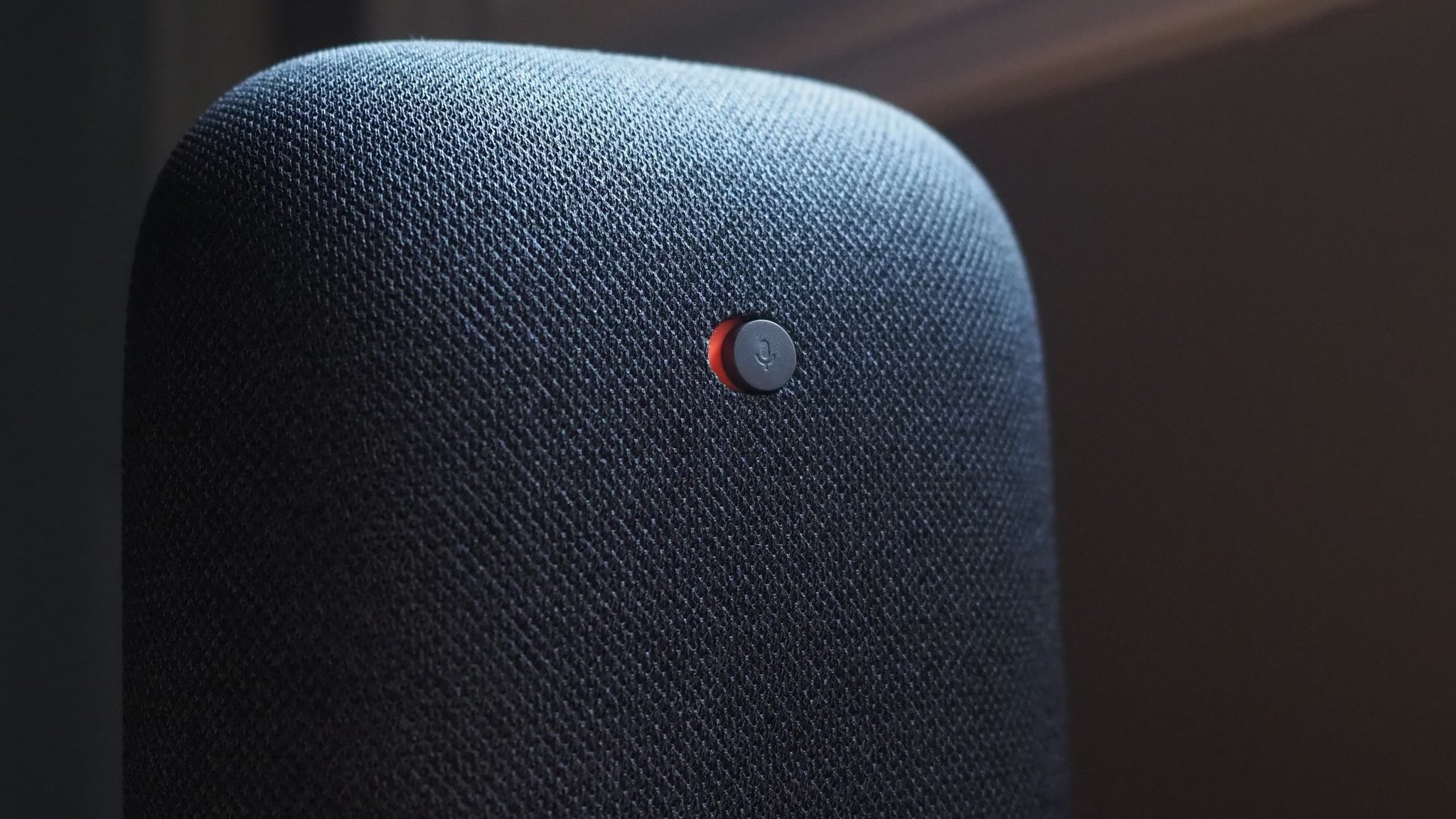
The Nest Audio and Echo (4th Gen) are fairly comparable, both in price and features. They give you access to their respective smart assistant and all the expected smart home features, but don't have any unique tools you won't get on a cheaper mini-speaker, or that you would get on a smart display like Nest Hub Max or Echo Show 10.
In our rankings of the best smart speakers, we place the Echo (4th Gen) one spot above the Nest Audio, mainly thanks to the slightly richer sound and strong bass of the Echo, while the Nest works best as a stereo pair. But the audio-quality gap isn't so huge that regular Google Assistant owners won't want to stick with the ecosystem they know and love.
Whichever smart speaker you choose, we think both the Nest Audio and Echo (4th Gen) will make a fine addition to your living room.
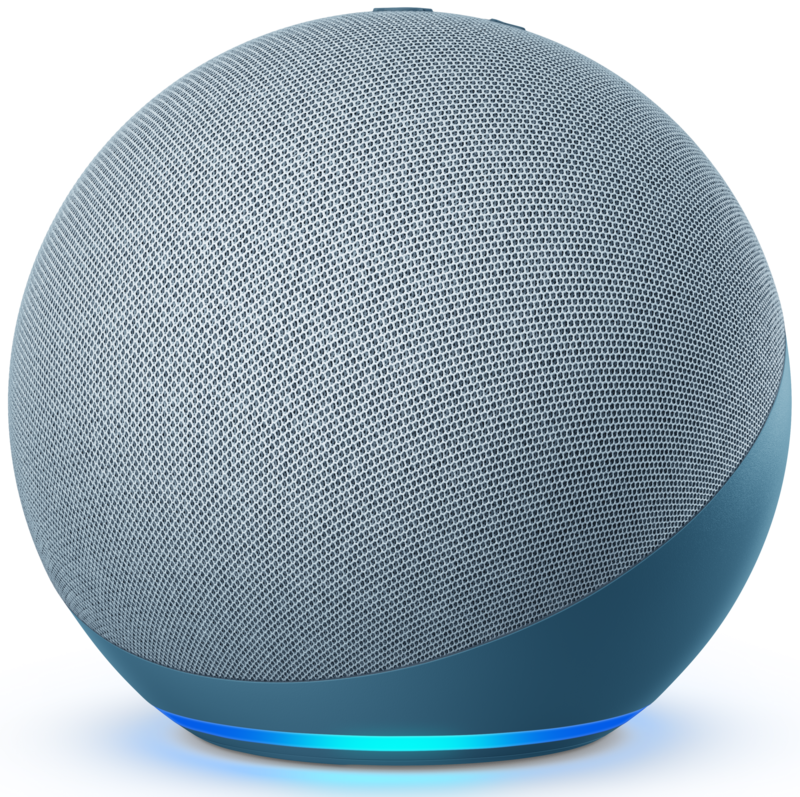
Smarter, faster, clearer
With stronger speakers, new compatible smart tech, and a larger range to control more tech thanks to Amazon Sidewalk, the 4th-generation Echo truly feels like an upgrade compared to the Echos that came before. Plus, you'll get answers from Alexa faster than ever before.
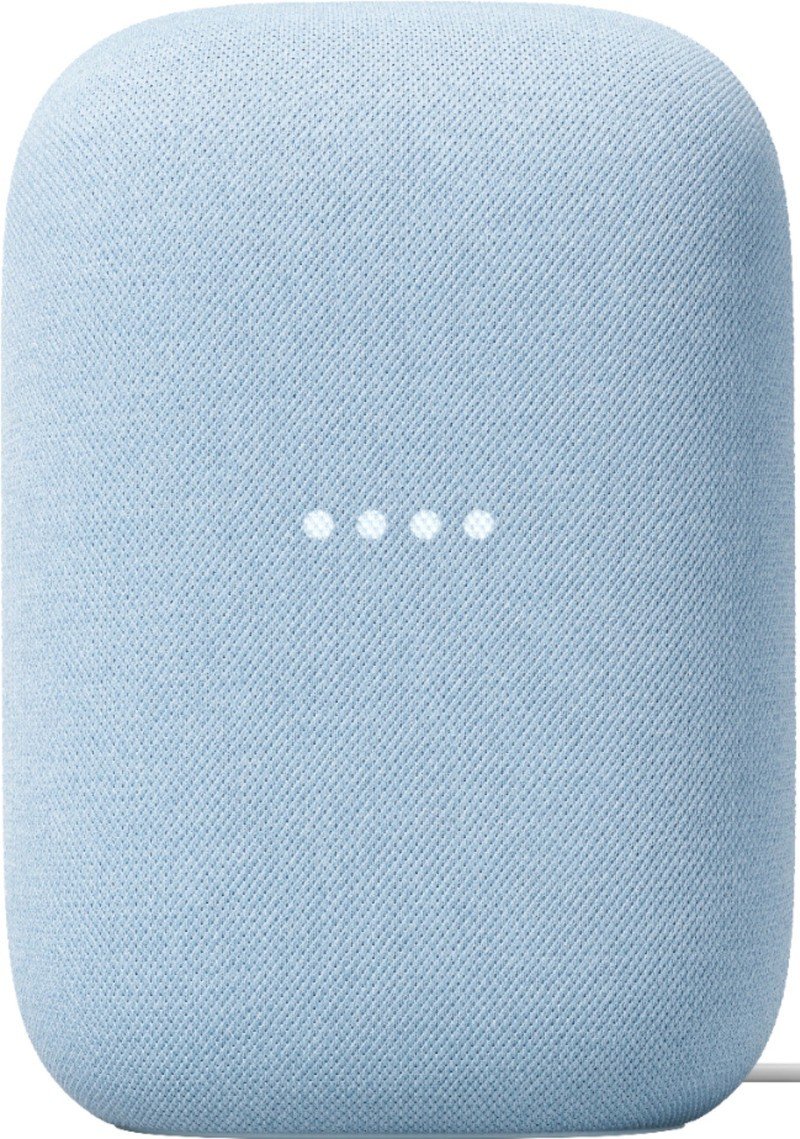
Audio and Assistant revamped
With improved volume, dynamic range, and bass over the Google Home speaker, Nest Audio shows that Google prioritized quality musical performance above all else for its new, tall, smart speaker. And its Google Assistant speeds are as fast as you could hope for.
Be an expert in 5 minutes
Get the latest news from Android Central, your trusted companion in the world of Android

Michael is Android Central's resident expert on wearables and fitness. Before joining Android Central, he freelanced for years at Techradar, Wareable, Windows Central, and Digital Trends. Channeling his love of running, he established himself as an expert on fitness watches, testing and reviewing models from Garmin, Fitbit, Samsung, Apple, COROS, Polar, Amazfit, Suunto, and more.
